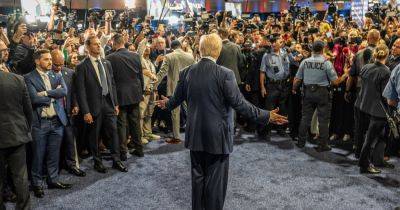How a TV Critic Navigates an Age of Endless Content
James Poniewozik has a tough job: He gets paid to watch TV.
“There’s a lot to keep up with,” Mr. Poniewozik, 56, the chief television critic for The New York Times, said in an interview. “But much of the time it is really interesting.”
For nearly three decades, he has written about dramas, comedies, presidential debates, court hearings, interactive art installations and anything else that plays out on the small screen. Mr. Poniewozik began writing about television as a media columnist for Salon and later became the TV and media critic for Time magazine. He joined The Times in 2015, focusing his coverage on the intersection of TV, culture and society at large.
Ahead of TV’s biggest night — the Emmy Awards — on Sunday, Mr. Poniewozik shared the TV trends he’s watching and how he decides what shows to cover in the seemingly infinite modern TV landscape. These are edited excerpts.
Fourteen percent of American adults say they get their news from TikTok , up from 3 percent in 2020. Is TV still a force to be reckoned with?
TikTok has certainly become more influential. But I was struck while covering the presidential debate between Biden and Trump that it was possibly the most politically consequential TV broadcast ever: Because of one or two hours of TV, a candidate for president changed. All of the reasons Biden dropped out were present before the debate, but once you had tens of millions of people focused on one performance at one time, it became an unstoppable force.
How do you weigh how many people will watch a show against its quality when deciding what to review or cover?







